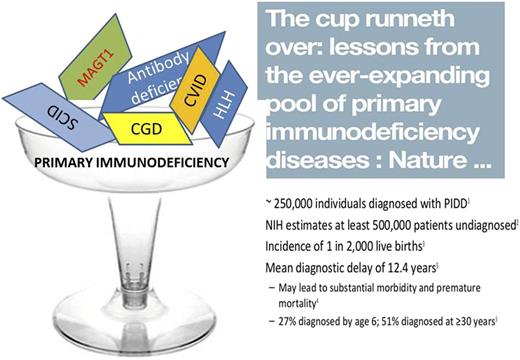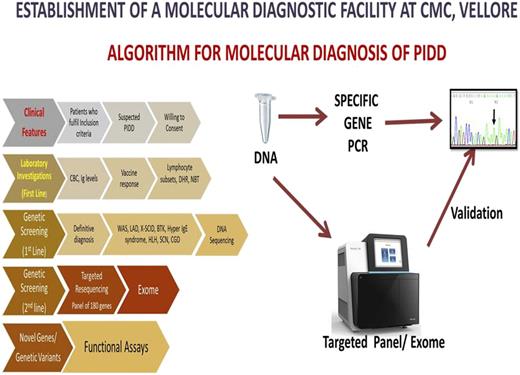The diagnosis of primary immunodeficiency disease (PIDD) is very important, because a correct and timely diagnosis can lead to lifesaving treatment and improvement in the quality of life for children in India.
Mutation analysis in PIDDs can help in definitive diagnosis (atypical presentations), carrier identification, genetic counseling, prenatal diagnosis, and prognosis (strong genotype-phenotype correlation).
Next-generation sequencing methods offer an unbiased genotype-based approach, which can facilitate quick and cost-effective molecular diagnostics.
>250 recognized PIDDs.
>300 genes involved.
There are very few centers in India offering a comprehensive diagnosis for PIDDs in India.
Training
Eunice Sindhuvi, Department of Haematology, Christian Medical College (CMC), Vellore, India, underwent training with Michael Lenardo at the Laboratory of Immunology, Molecular Development of the Immune System Section, National Institutes of Health, Bethesda, MD.
An extensive panel of markers was used to analyze different subsets of T and B cells using flow cytometry and assess their functions.
If a definite subgroup of PIDD was identified, direct sequencing of that particular gene was carried out to characterize the molecular defect. For example, patients with XMEN disease were screened for mutations in the MAGT1 gene.
Next-generation sequencing
Enrichment of exomic regions was done with an Ampliseq Exome kit.
DNA libraries were prepared and quantified with a bioanalyzer.
Sample analysis in the ion proton system.
Data generated were analyzed with Ion Reporter software and an in-house pipeline.
Work done at CMC
A comprehensive molecular diagnostic facility for PIDDs has been established at CMC. Antenatal diagnosis will be offered for couples with known molecular defects.
Molecular characterization of PIDDs is definitive, but is done only at a few selected centers in India.
Identifying the molecular basis will benefit patient families through carrier diagnosis and genetic counseling for affected families. The functional evaluation of novel genes will lead to a better understanding of our immune system.
Correspondence: Eunice Sindhuvi Edison, Department of Haematology, Christian Medical College, Vellore, India; e-mail: eunice@cmcvellore.ac.in.
Conflict-of-interest disclosure: The authors declare no competing financial interests.




